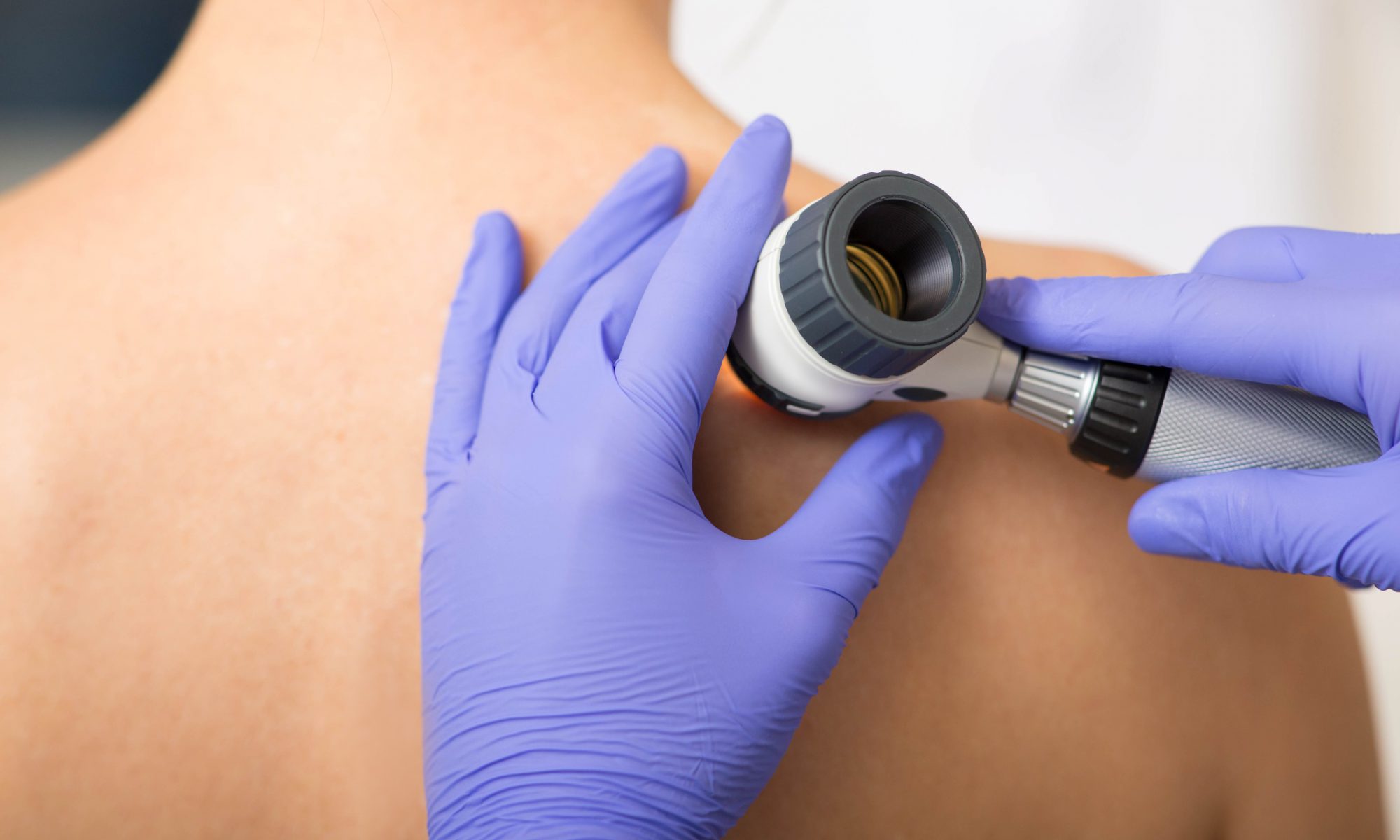Big companies like Amazon and Walmart have recently been testing drone delivery, flying customers’ orders to them through traffic-less skies. Given the volume of packages now circulating through the mail system every day (and the Amazon delivery vehicles constantly clogging up urban streets), it’s important that companies find better ways to get goods to buyers. But while ferrying paper towels or shampoo (or the innumerable other items people buy online) into buyers’ waiting hands via drone is convenient (and, let’s be honest, pretty cool), the speed and urgency of the airborne technology is somewhat lost on these mundane tasks. Read more in Singularity Hub.
Solid organ transplant patients may be at higher risk for skin cancer and require coordinated care
More than half of all patients who receive solid organ transplants will have an incidence of skin cancer at some point—most often a nonmelanoma cancer, such as basal cell carcinoma or squamous cell carcinoma. This increased risk can be several hundred times higher than in the general population. Read more in Medical Xpress.
Is Organ Transplant equal for everyone?
Solid organ transplantation (SOT) is a treatment, not a cure, for people with an end-stage organ disease. On average, in recent years, it is estimated that 130,000 organ transplants are performed each year worldwide, with an unprecedented impact on the quality and duration of the life of patients with organ failure (GODT, 2017). Read more from the European Public Health Alliance.
Flight delays for organs: Here’s why the donation transportation system needs to change
Anthony Depasquale’s lung transplant almost didn’t happen.
He had been in the hospital this spring with complications from COVID-19 on a ventilator and in a medically-induced coma for months. Read the full story in USA Today.
UCSF Health Reaches 20,000 Organ Transplants
Cardiovascular Surgeons Perform the Health System’s First Donation After Circulatory Death Heart Transplant
UC San Francisco surgeons have performed the health system’s 20,000th solid organ transplant, making it just the third in the nation to reach that milestone. The surgery also marked UCSF Health’s first donation after circulatory death (DCD) heart transplant, a procedure performed by only about twenty health systems in the U.S. Read more from UCSF Health.
You Need an Organ Transplant: 10 Pieces of Advice from Those Who Have Gone Through It
You just found out you need an organ transplant. Whether it’s a heart, kidney, liver or lung, there are some key fundamentals to keep in mind as you navigate your transplant journey. Who better to share advice than those who have been through it?
Get the full story on CareDx.com.
Performance of Race-Free GFR Equations Among Kidney Transplant Recipients
Estimated glomerular filtration rate (eGFR) is the best marker of allograft function and is a predictor of allograft and patient survival among kidney transplant recipients. Measurement of true GFR is costly and time-consuming, while eGFR is a relatively inexpensive and efficient marker to track allograft function.
Read more in Nephrology Times.
Most heart transplant centers’ websites get failing grade when it comes to clear, accessible information
The majority of sites studied were written at a college junior’s reading level, and over a third had no resources for people who spoke a language other than English.
In a University of Michigan-led study, researchers found that most websites for heart transplant centers in the United States are difficult to understand, with more than 40% lacking information in languages other than English.
The majority of the 139 websites analyzed were at a college junior’s reading level, much higher than the average American’s 8th-grade reading level. Read the full story the University of Michigan’s Health Lab.
Bias against older organ donors may be leading to smaller organ supply for transplants
Organ procurement organizations and transplant centers were about 5% less likely to choose organs from 70-year-old donors compared to those who were just a year younger.
American transplant centers as well as organ procurement organizations, the groups responsible for recovering organs from deceased donors in the United States, were less likely to accept or select organs from donors who were 70 years old when they died compared to those who were 69, new research found.
Read the full story from the University of Michigan Health Lab.
Management of allograft loss requires teamwork, patient involvement
Tarek Alhamad, MD, has witnessed the grief that patients with a kidney transplant experience when they are facing loss of an allograft.
“It is definitely one of the hardest discussions that we could have as transplant nephrologists with the transplant recipient,” Alhamad, associate professor of medicine and medical director of the kidney transplant program in the division of nephrology at the Washington School of Medicine at St. Louis, told Healio/Nephrology News & Issues. “Going back to dialysis is something that would change their life completely with less quality of life and major dependence on a machine to continue to survive.”
Read the full article in Healio.






